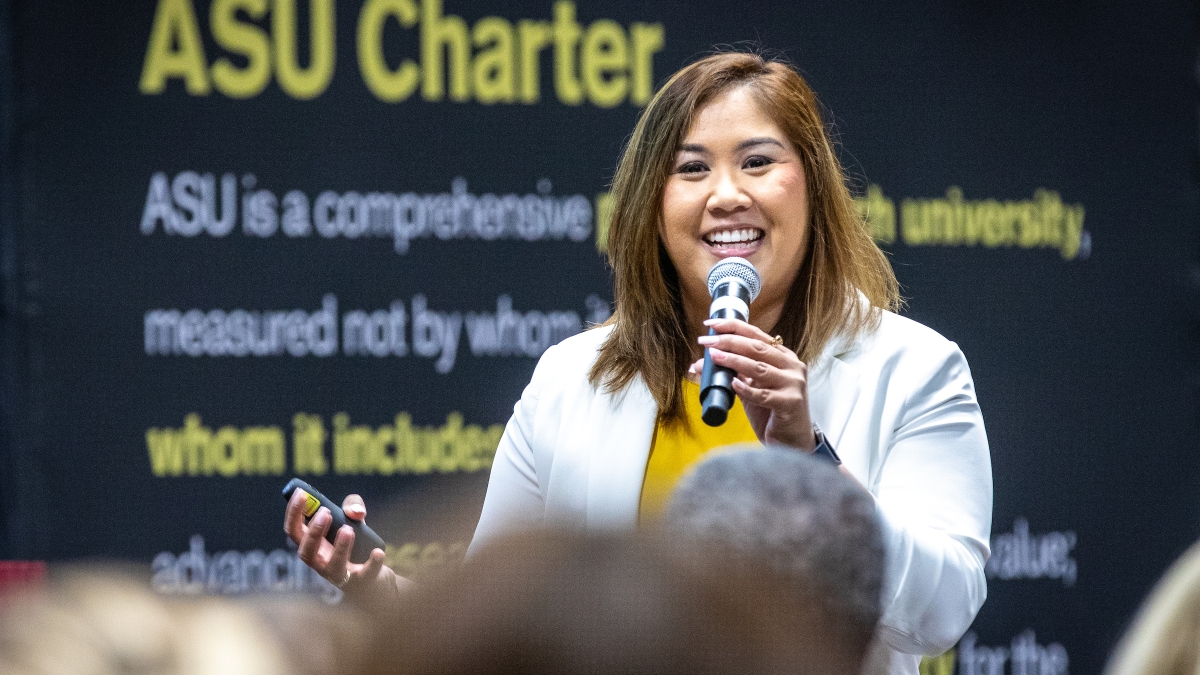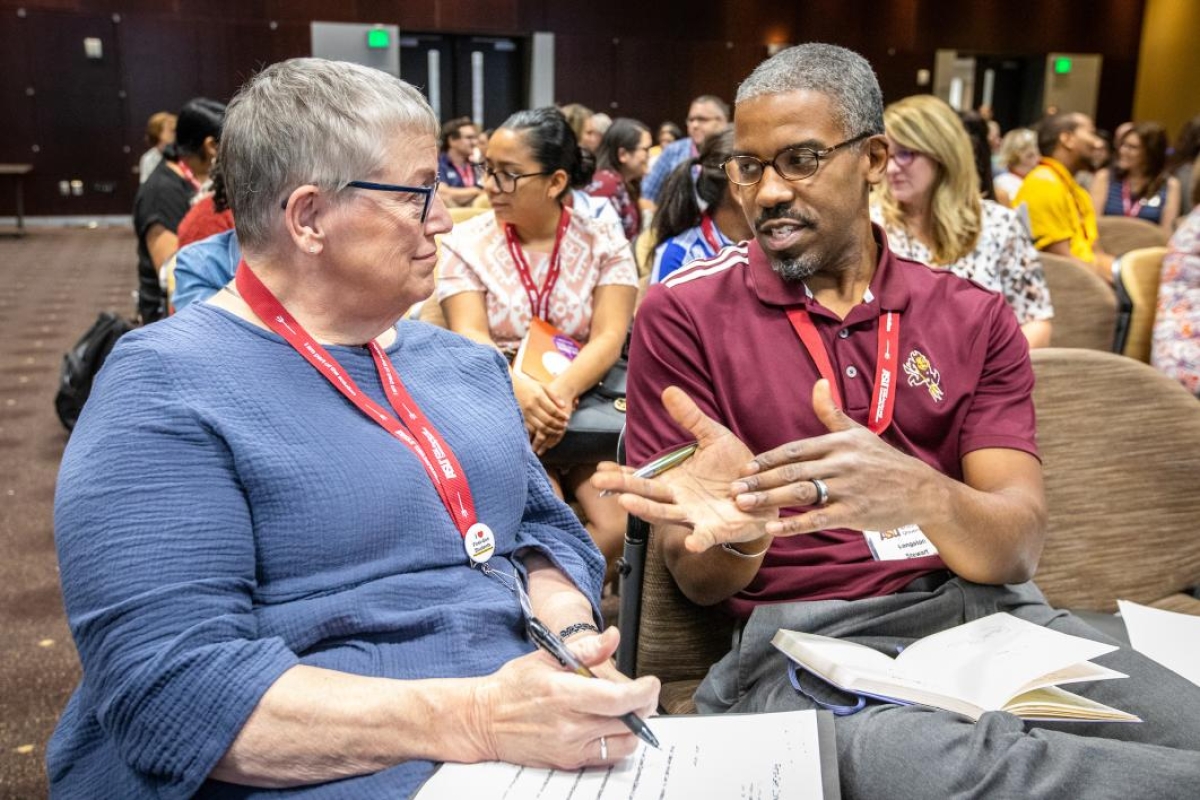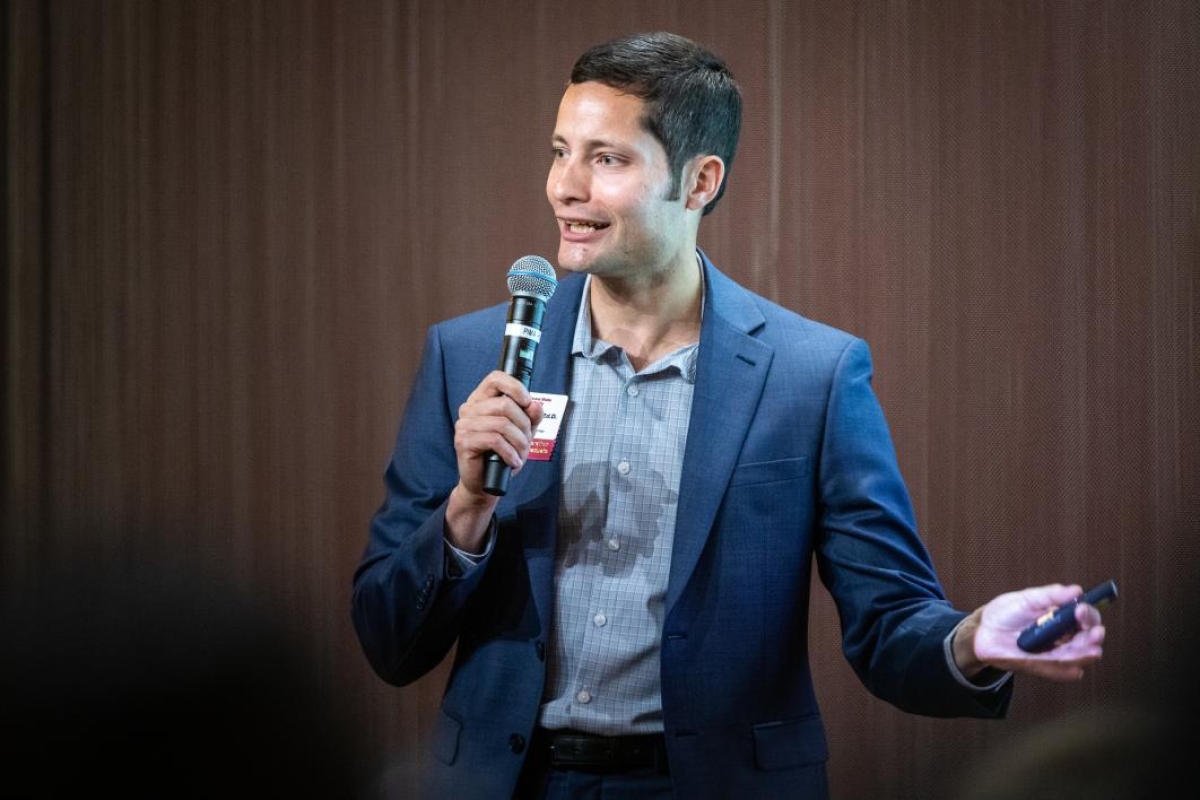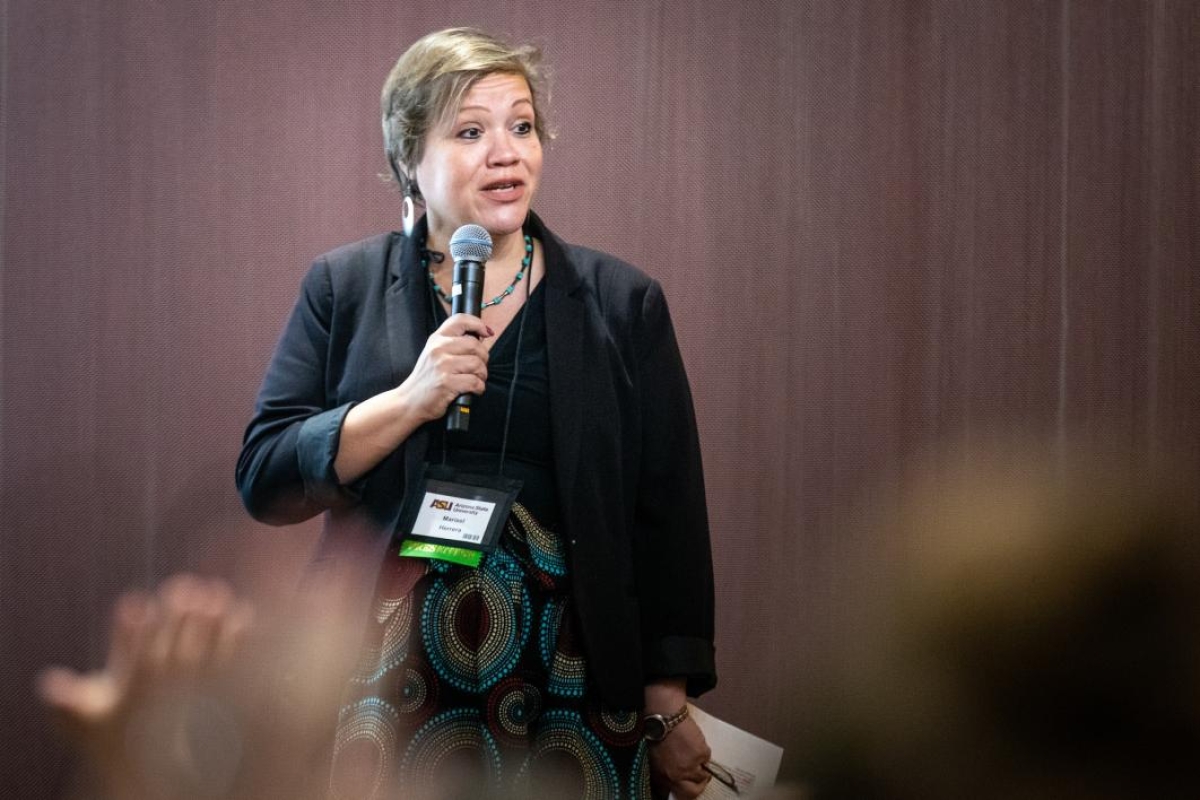Everyone who works at Arizona State University is critical to the success of students — especially students who are the first in their family to go to college. On Tuesday, hundreds of staff and faculty attended the first-ever ASU First-Gen Zone workshop on how to support this growing group of students.
ASU has about 25,000 first-generation undergraduate students. Of the total undergraduate and graduate population, about 35% are first generation college-goers — more than three times the proportion since 2002, according to Kevin Correa, director of the First Year Success Center at ASU.
“We want first-generation students to know they’re not alone at the university,” he said.
Staff and faculty are so eager for this information that the 100 seats allotted for the workshop filled up within half an hour of registration opening, Correa said. So the event was enlarged and moved to the Memorial Union, drawing more than 250 staff and faculty members from all four Valley campuses plus the SkySong and Lake Havasu locations.
The First Year Success Center’s Game Changers program is devoted to first-generation students, with one-on-one peer coaching and other services. But Marisel Herrera, founding director of the center and now the director of training and development, said that all staff at ASU are instrumental in guiding this population.
“All of us are educators and influence students because they see us as the experts,” she said. “There’s an invisible army at ASU we don’t talk about, like the cashiers and the custodians. Those people matter in making connections.”
ASU was recently designated a First Forward institution by the Center for First-generation Student Success.
To truly support first-generation students, universities must take the responsibility for their success — not foist it onto the students, according to Lindsay Romasanta, who gave the keynote address at the workshop. Romasanta, who earned a bachelor’s and doctorate degree at ASU, is director of student success programs at the University of California, San Diego.
That requires a change in mindset, she said, because first-generation students are more likely to be working, to be female and to be people of color.
“I’ve heard folks say, ‘They should have showed up for that advising appointment’ or ‘They should have joined that club,’" she said.
“But when we blame the lack of engagement on the student without being conscious of their lived experience, we’re missing the boat. They might be commuting or taking care of a family member.”
Romasanta said that a lot of previous research approached first-generation students as being “at risk” or lacking certain skills.
“It’s time to flip the script,” she said, noting the strengths she saw when she worked in the TRIO program at ASU’s Downtown Phoenix campus.
“I was always amazed by those students. ‘How many jobs are you working? How many people are you feeding?’”
It’s important to remember intersectionality, Romasanta said — or the many identities that make up every person.
“First generation is just one identity that a student might have, but their most salient identity might be their immigration status or their gender identity or their commuter status,” she said.
At the institutional level, universities need to create systems of data and research on first-generation students, as well as provide a system of support including one-on-one peer coaching, she said. And consider setting up support for new graduates.
“First-generation students who are being surveyed are saying it’s taking them longer to get a job,” she said. “We can’t just push them out the door with a degree.”
The workshop included several break-out sessions. Correa and Herrera shared tips in a session titled, “Brilliant and Resilient: The Impact of Coaching on First-Generation Students.”
Correa said that the 78 peer coaches, who each receive 100 hours of training, have made a difference: 85% of first-generation students who met with peer coaches in spring 2019 registered for classes in fall 2019, while 71% of first-generation students who did not meet with coaches registered. The coaches engaged with 62% of first-generation freshmen.
Herrera said that many staff members’ most frequent contact is with student workers, which is crucial.
“Those jobs are critical to their success at ASU,” she said.
“What they’re doing day to day may not seem to matter to their future, but it’s important for you to show them how it will matter.”
Some of the advice from that session includes:
• Normalize first-generation identity by talking about it. Staff and faculty who were the first in their families to go to college can share their stories. Celebrate First Generation College Student Day on Nov. 8.
• Embrace the perspective that first-generation students bring their own strengths.
• Connect students to resources, opportunities and information they need. Explain procedures and jargon to them.
• Be a cheerleader by encouraging them. “Help them know they do belong at the university and that they’ll be cared for and supported,” Herrera said.
• Be willing to have difficult conversations. “Sometimes you don’t know how to navigate an environment, and that might show up in your attire. That’s an awkward conversation,” Herrera said. “Most people respond to feedback when they know you care about them. Say, ‘I know you have goals in mind. Do you think the attire is conveying the message you want others to have?’ It’s our responsibility to have those conversations.”
• Be authentically curious and nonjudgmental. “For me, the phrase is, ‘Tell me more about your experience,’” Correa said. “A coach helps a student find their best path by being nonjudgmental.”
Herrera said the future of higher education is with first-generation students.
"That's not hyperbole — that’s a demographic reality," she said.
Top photo: Lindsay Romasanta, an ASU alumna who is now the director of student success programs at the University of California, San Diego, was a first-generation student at ASU. Photo by Charlie Leight/ASU Now
More Sun Devil community

Deployment, injury couldn’t keep military member from graduation
Raised on the small island of Jamaica, Aneska Holness and her younger brother left to start a new life in the U.S. with their mother, who was driven by the hope of building a better future for her…
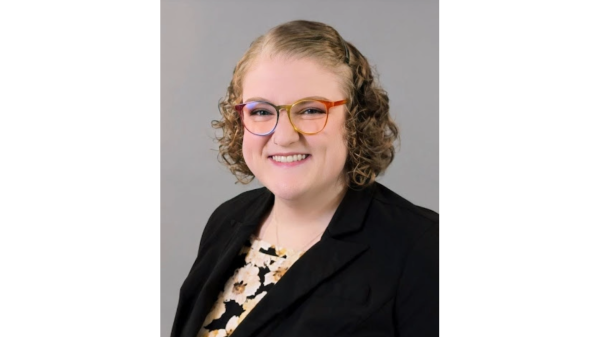
Graduating student finds calling in sociology and community advocacy
For Samm Hall, growing up in the small Appalachian city of Chillicothe, Ohio, meant facing limited educational paths and career opportunities. Wanting to help others, she initially chose to study…
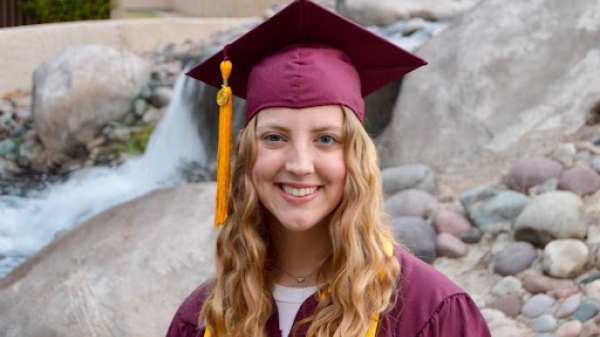
From patient to advocate: ASU grad turns personal challenges into child life advocacy
Sometimes, it’s the kindness of others that changes the course of your life. For Megan Larsen, that kindness came from child life specialists during some of her most challenging stays at Phoenix…
